FORT LEAVENWORTH, Kan. (Oct. 1, 2009) - A group of 19 journalists from across the nation listened, prayed and even held back tears as families and service members from the Military Police Corps honored their fallen.
Command Sgt. Maj. Charles R. Kirkland III, of the Military Police School, delivered the memorial address at the U.S. Army Military Police Corps Regimental Memorial Grove Sept. 23 at Fort Leonard Wood, Mo.
"Throughout our history, the American Soldier has been perceived by those not associated with the military as a noble citizen that has put their lives on hold to preserve peace in the service of our nation, and although this is true in many respects, I offer to you - as this audience will understand - that this is our life," Kirkland said. "This is the life we grow to love and our families grow to love themselves. The Army family is an example of strength, a display of compassion and proof of perseverance."
The ceremony to honor fallen Military Police and Gold Star families was one of many experiences journalists shared to learn more about the military. This is the second year for "Bridging the Gap: A Military Experience for Journalists," funded by the McCormick Foundation and operated by the University of Kansas and the Combined Arms Center. Journalists spent a week at Fort Leonard Wood and Fort Leavenworth learning about aspects of Army life - from the time civilians enter an inprocessing center and emerge as uniformed Soldiers to the time Army majors undergo leadership education at the Command and General Staff College. The McCormick grant has also included a course shared between CGSC and undergraduates at KU.
The workshop brought together established journalists with varying degrees of military involvement - some are military reporters in their communities, some are military spouses and others had no military backgrounds. Activities included getting up at 4 a.m. to do physical training with Soldiers in the Noncommissioned Officer Academy, navigating an obstacle course, using weapons electronic simulation training and a simulated truck driving course. Journalists toured both military installations and had the opportunity to interview service members at every turn.
"It was great to talk with Soldiers candidly about issues that even journalists struggle with," said Amy Hotz, staff writer for the Star-News in Wilmington, N.C. "I told the class I 'embedded' with to pick up an ethics guide from a local newspaper and educate themselves about where our own lines are drawn. I think it will help them see where we're coming from."
Journalists agreed there's a disconnect between the military and the media, but said sometimes it's as much of a misunderstanding about what journalists do as a misunderstanding about the military.
Audrey Parente, staff writer for The News-Journal in Daytona Beach, Fla., said it's not as easy for non-national news outlets to sift through military news and find their local focus.
"I'm not reporting on the big picture," she said. "I'm at a small newspaper. My interest is our local connection, our local people - where are they, what are they doing'"
When CGSC students said that journalists wouldn't be interested in writing a positive story about the military opening up a flour mill, Parente said local news outlets might be interested.
"We love stories like that," she said. "If I could do a story about a local Soldier who is involved in getting a flour mill open that's feeding 1,000 Iraqis, we'd love to do that story."
Marshall White, reporter for the St. Joseph News-Press in St. Joseph, Mo., also said getting locally specific information could be difficult. He found a story on the Department of Defense Web site he wanted to use, one in which he even knew the local Soldier, and had to wait three days and call numerous sources to write his own story on the same topic.
Hugh Lessig, military reporter for The Daily Press in Newport News, Va., said while the experience itself won't change how he reports or writes, he was glad for the outreach opportunity.
"Good rules of reporting apply to any news beat, whether it is the military, cops, courts or politics," he said. "Be accurate. Be careful. Be tough when you sense wrongdoing and be sensitive to those who are victimized. Place things in the proper context as best you can, and if you're not sure about something, don't report it."
Lessig said in understanding the culture of the media, military officers should understand the deep economic crisis media companies face.
"Newspapers are cutting back or closing altogether," he said. "We are emphasizing our Web sites, taking photos and video. We no longer have the resources or news space we had even 10 years ago. That's not an excuse. That's just the way it is."
Other journalists participating in the workshop included Bryan Dean of The Oklahoman, in Oklahoma City; Michael Douglas, broadcast coordinator for Florida Memorial University in Miami Gardens, Fla.; Zachary Fuhrman, Indiana University student, Will Klusener, reporter for The Manhattan Mercury in Manhattan, Kan.; Courtney Martin, senior correspondent for The American Prospect; John Milburn, the Associated Press in Topeka, Kan.; Tara Puckey, contributing writer for Ameriforce Publishing; Jennifer Rowell, military reporter for the Montgomery Advertiser in Montgomery, Ala.; Beverly Rumley, freelance sports television producer; Michelle Fe Sabala Santiago, Kuwait correspondent for ABS-CBN Middle East News Bureau in Dubai and freelance reporter for the Arab Times in Kuwait; Allyson Shaw, University of Kansas journalism student; Toni Stinson, editor of The Caroline Progress in Bowling Green, Va.; James Wright, editor of The Times-News in Twin Falls, Idaho; and Jordy Yager, writer for The Hill in Washington, D.C.
Tom Volek and Barbara Barnett, professors at KU, both coordinated the program from the academic side and public affairs officers from Fort Leonard Wood, Fort Leavenworth and CGSC coordinated from the Army side. The McCormick grant has been renewed for another year, Volek said. The participating journalists are blogging about their experiences at miljoworkshop2009.blogspot.com.

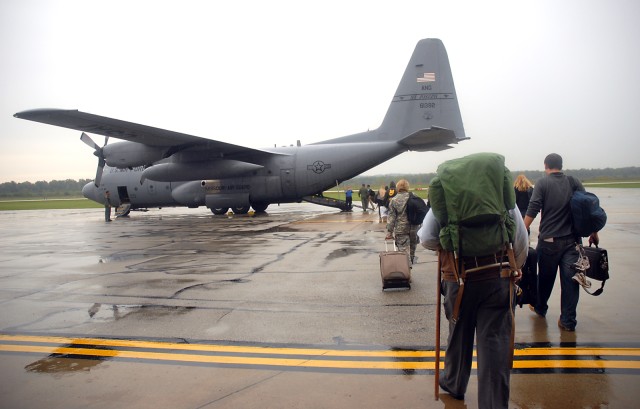
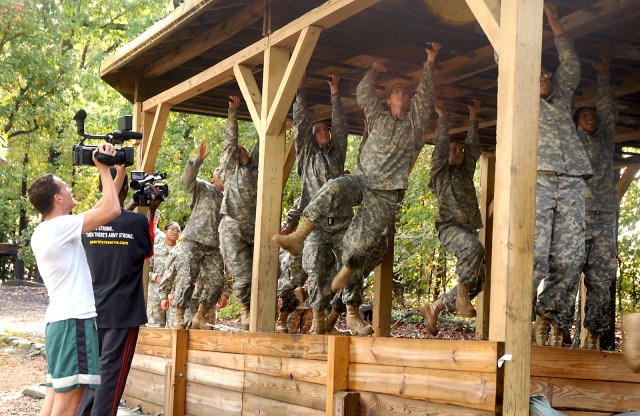

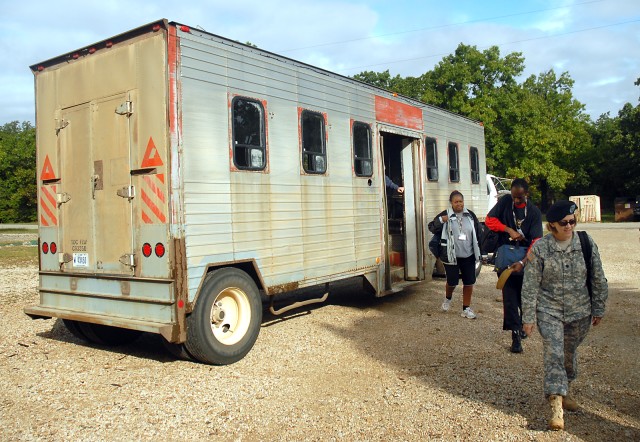
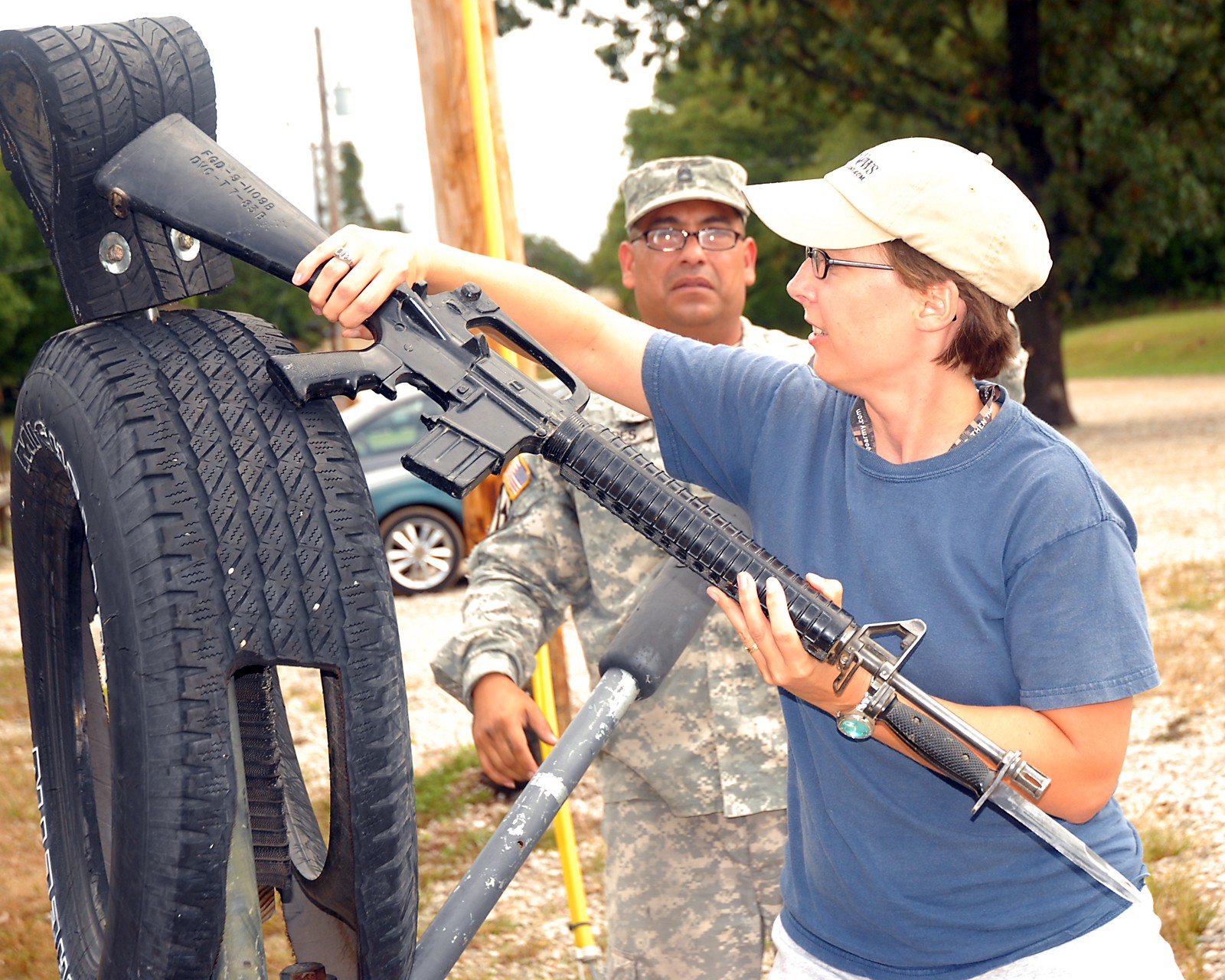
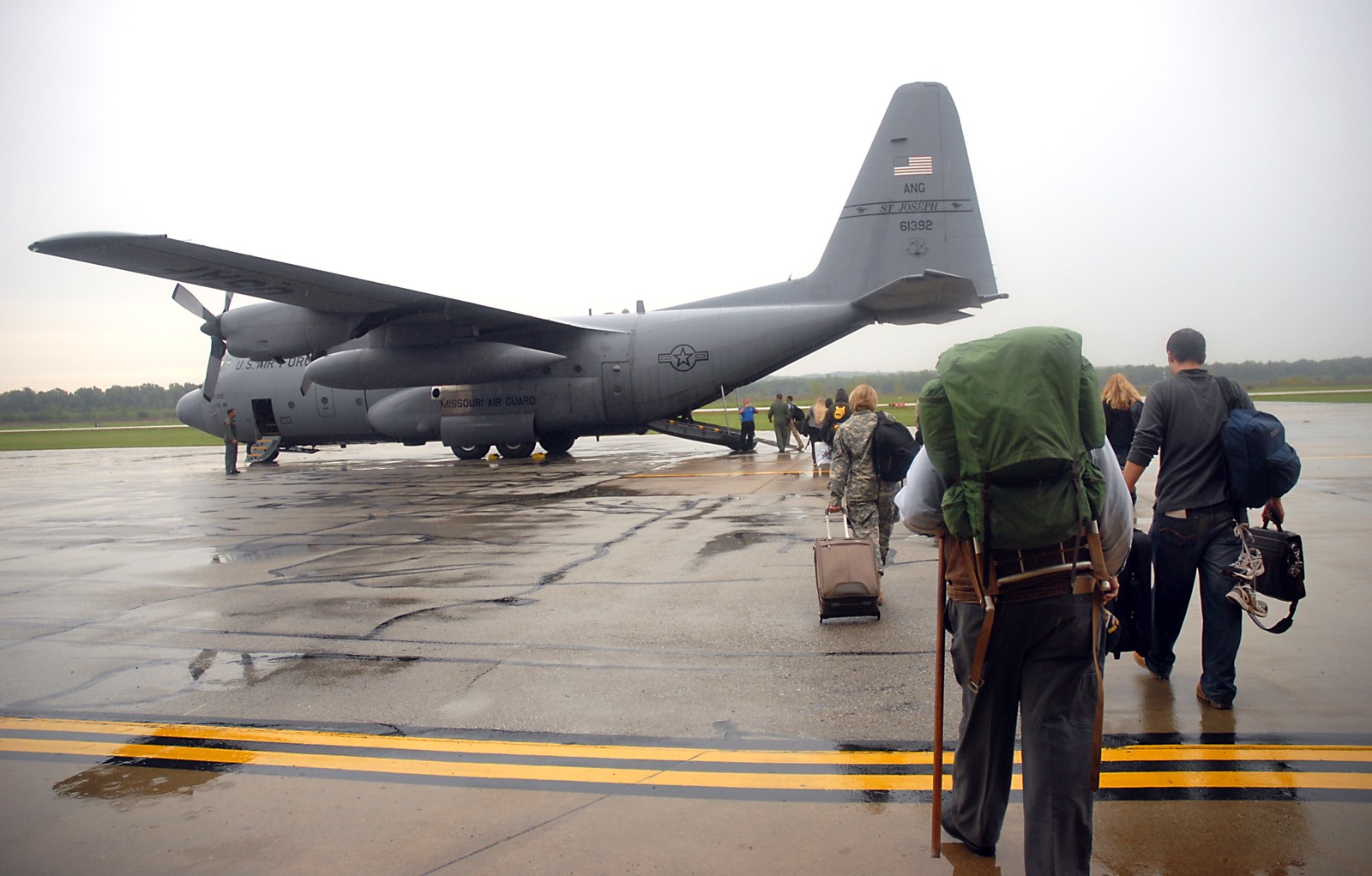
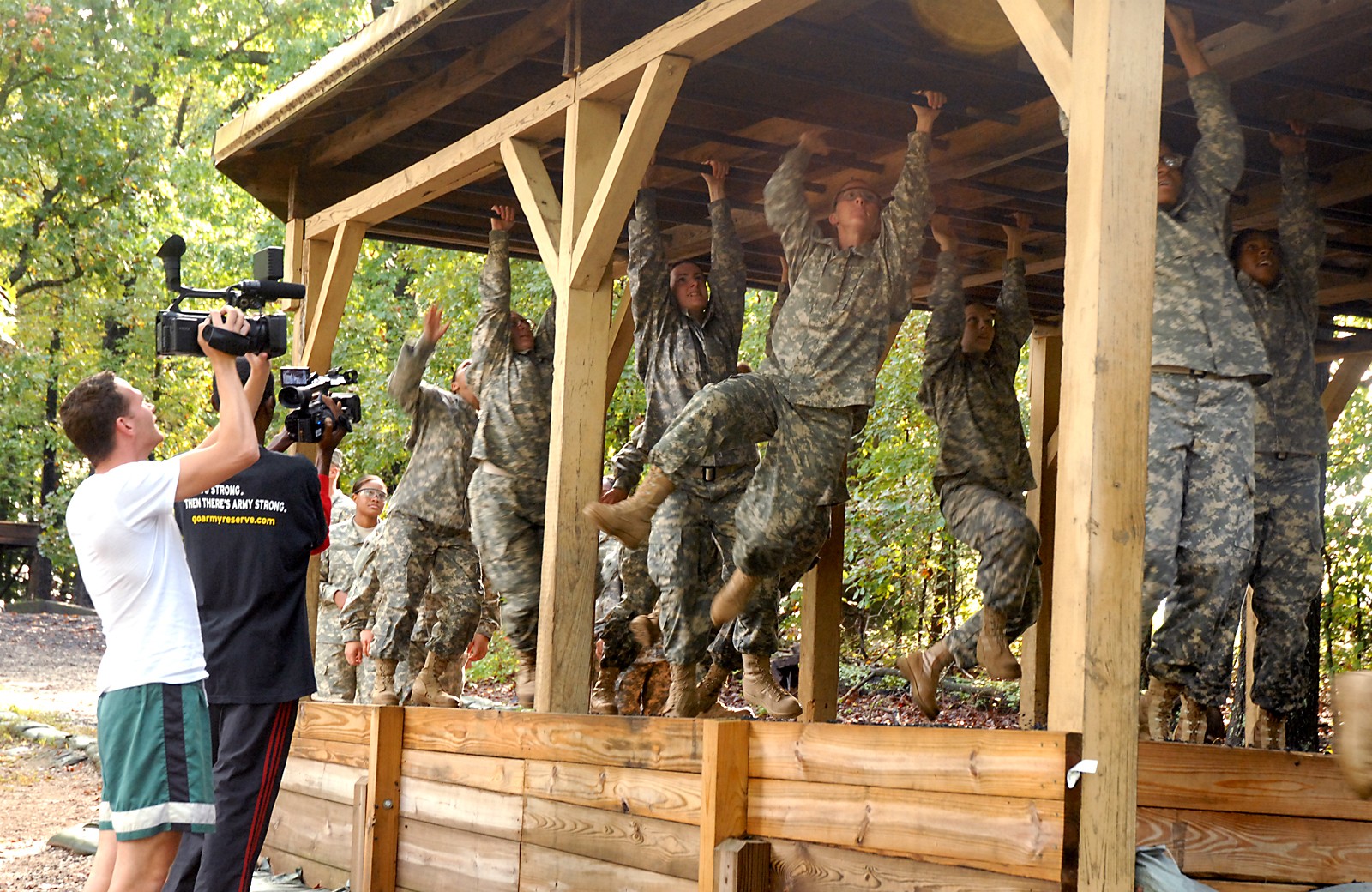
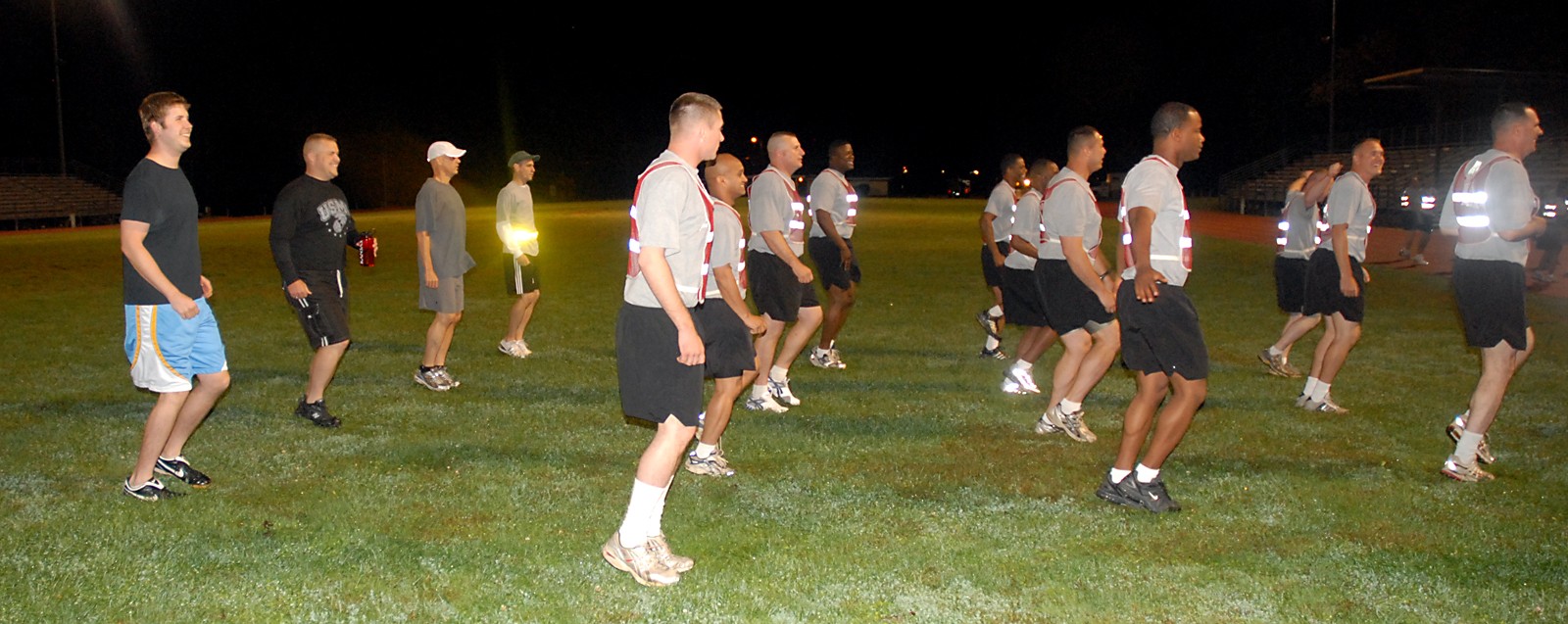
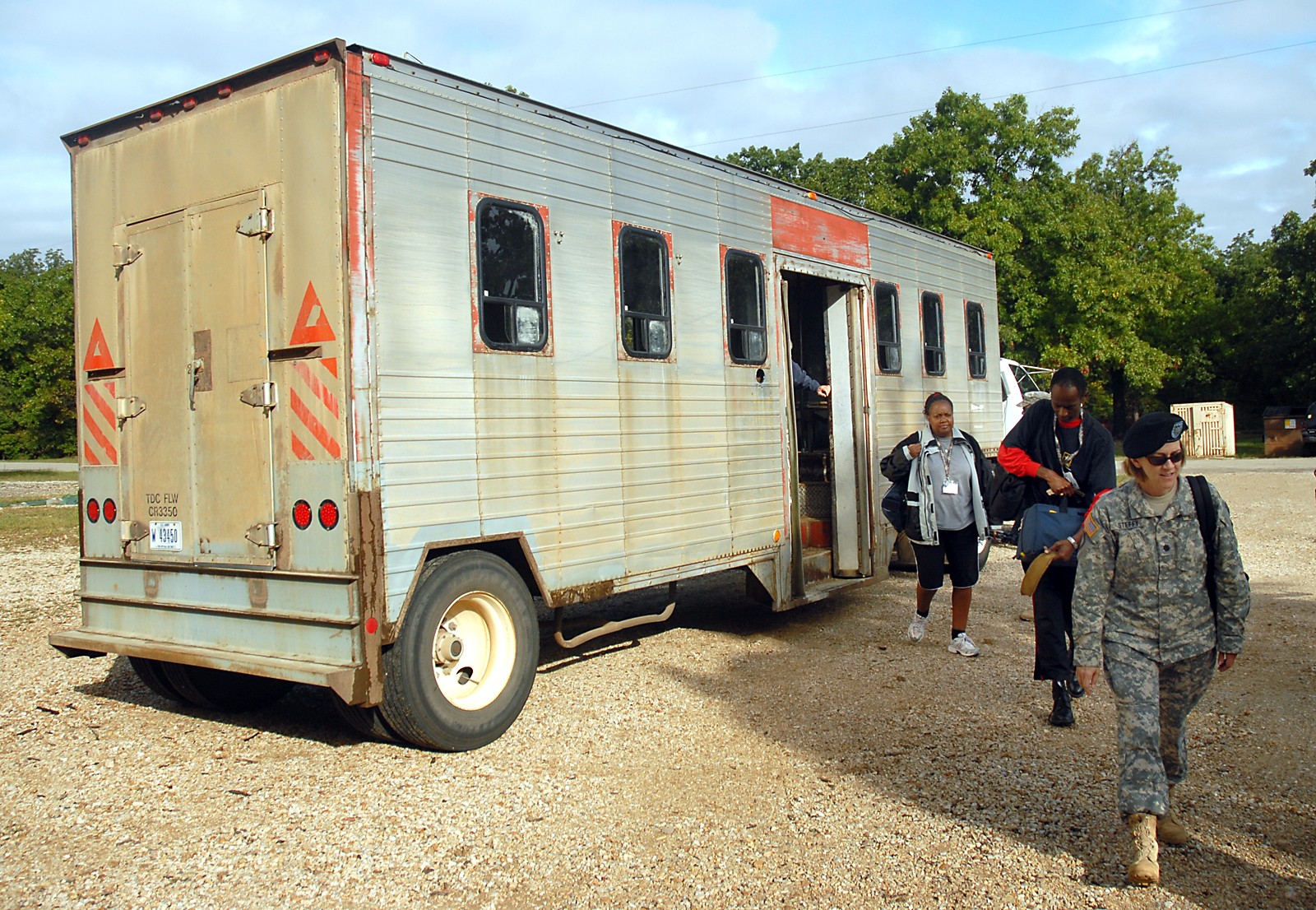
Social Sharing